8 Italian-American Singers of Yore Who Prove That America's Greatest Asset Has Always Been Its Immigrant Culture
Prepare to have your heartstrings plucked and your swoons swooned.
One of the best things about living with a musician is that they bring their music into the relationship. In John’s case, this holds doubly true because: 1) he’s the grandson of the great American songwriter Hoagy Carmichael ("Georgia on my Mind,” “Heart and Soul,” “Stardust,” “The Nearness of You”), 2) he has been a professional drummer his entire adult life, 3) he has informed and wide-ranging taste in music, 4) he is a vinyl collector nonpareil, jazz and rhythm & blues mostly, but with a decided preference for 50s and 60s Big Band and 60s and 70s lounge.
He warned me about the lounge stuff before we moved in together, and I’ll admit to feeling a certain amount of trepidation. After all, who on earth actually enjoys listening to lounge, the single most lampooned and pilloried genre in the history of music? So you can imagine my horror when I discovered that I actually liked it when he put on his lounge vinyls while cooking dinner; that I started forming opinions about whose voice I found most pleasing; then—and I’m shaking my head as I write this—I started asking to hear Buddy Greco, Frank Sinatra, and Jimmy Moselli.
Just shoot me.
At first, I chalked it up to getting older. My tastes were changing, right? Next up: gardening clogs, prune whip, and Centrum with a safety cap. Hey, I was the woman who worked all day and then drove two hours to go to a Nine Inch Nails concert. As a kid, all I listened to was Alice Cooper. And now, here I was swooning over Louis Prima and loving every damn minute of it.
Oh, how the mighty have fallen.
But the truth is, these old crooners had incredible voices. There was no Auto-tune back then, no synthesizers or post-production. You had to have mad chops to stand on a stage in front of an audience and nail it every single time. Backed by some of the world’s greatest musicians and most beautiful, full-bodied arrangements, the legends of lounge and Big Band dominated the culture then, and even now continue to dazzle and amaze.
I was wrong about all of it. In my snobbish disdain for all things not hardcore, industrial, jazzy, classical or operatic, I dismissed what has become, for me, an important part of my playlist.
But here’s the part that’s legitimately fascinating about this particular generation of singers.
Most of them were Italian.
Living in Italy as I do, it isn’t lost on me that Italians ooze talent. They have a long history of exporting that talent to other countries. By some miraculous alchemy, these sons and daughters of Italy sank a collective taproot into American soil and flourished. Our greatest actors (e.g., Robert de Niro, Al Pacino, Joe Pesci, Leonardo DiCaprio, James Gandolfini, Danny DeVito, Mira Sorvino) are first- or second- generation Italians. Martin Scorsese and Francis Ford Coppola are two of our greatest directors. In sports, such as boxing and baseball, Italians dominated: Joe DiMaggio, John Orsino, Jim Barbieri, and the list goes on. Politicians? From Nancy Pelosi to the now-disgraced Andrew Cuomo, there has been a flip-chart of Italian faces in politics, although so far, none has made it to the White House.
There are two reasons: most people (wrongly) associate Italian heritage with the mob, and Italians are largely Roman Catholic. The irony amuses me. Most of our sitting Supreme Court are Catholic, albeit a more extremist form of the faith.
We Americans are nothing if not baffling.
No one has contributed more to American culture than Black Americans, Jews, the Irish, and the Italians. Without them, we’d all be listening to Lawrence Welk’s accordion wheeze out another maniacal polka tune.
It is the Italian crooners I’d like to focus on in this Cappuccino. I’m willing to bet that by the end of the article, you’ll be a fan of their outsized talent, too. Promise me that you’ll listen to at least ONE song before dismissing me as crazy. I just got my twenty-six-year-old son who only likes classic country singers like Charlie Rich and Johnny Paycheck to listen to Buddy Greco. At this point, there’s nothing I can’t do.
Rosemary Timothy Yuro aka Timi Yuro (August 4, 1940 – March 30, 2004—the family’s original name was Aurro) grew up singing in her family’s Italian restaurant. After being discovered by talent scout Sonny Knight, Yuro was signed to Liberty Records at the age of nineteen and recorded a hit single, “Hurt,” that reached No. 4 on a U.S. Billboard in 1961. As one critic so eloquently put it, Yuro’s rich contralto and “deep, strident, almost masculine voice, staggered delivery, and the occasional sob create a compelling musical presence.” She was a singular, even odd chanteuse in an industry that favored polished, swan-like creatures, which may have prevented her from becoming the super star she deserved to be. But once you hear her magnificent voice, you’ll understand why many listeners in the 1960s thought Yuro was Black, which is high praise indeed.
Buddy Greco (August 14, 1926 – January 10, 2017—né Armando Joseph Greco) was Italian on both sides who grew up performing on the radio and in nightclubs around Philadelphia. His family was so poor, they couldn’t afford a piano, so his father taped cut-out piano keys on the kitchen table, where Greco would practice. He admitted he could actually hear the notes in his head.
At the age of sixteen, he was hired by bandleader Benny Goodman where he made his bones as a singer, piano player, and arranger. This led to a long recording career, and in 1967, a CBS television series called Away We Go with comedian George Carlin. His hit single, “The Lady is a Tramp” sold over a million copies. His jazzy, finger-snapping, swing swing swing vocal stylings made him a subject of parody for some, but once you hear his incomparable phrasing in “Dreamy,” you’ll never dismiss him again.
Few Italian immigrants have made a more seismic impact on American culture than Francis Albert aka Frank Sinatra (December 12, 1915 – May 14, 1998), the only child of an abortionist nicknamed “Hatpin Dolly” and an illiterate bantamweight boxer. He weighed over thirteen pounds at birth, requiring the aid of forceps, which perforated an eardrum and caused significant scarring to his left cheek. Regardless, his mother poured all her love and attention into young Francis, making sure he was the best-dressed kid at school.
Sinatra began singing professionally as a teenager, but never learned to read music. He sang by ear, which surely contributed to his remarkable phrasing, ability to swing, and unstudied delivery. By the time he started singing with the Tommy Dorsey band, Dorsey himself said: “You could almost feel the excitement coming up out of the crowds when the kid stood up to sing. Remember, he was no matinée idol. He was just a skinny kid with big ears. I used to stand there so amazed I'd almost forget to take my own solos.”
This goodwill ended in 1942 when Sinatra decided to go solo. Dorsey reportedly told him, “I hope you fall on your ass.” Later, he would say to the press, “He [Sinatra] is the most fascinating man in the world, but don't put your hand in the cage.”
By May of 1941, Sinatra was topping all the charts. He starred in more than 45 movies and sold over 150 million records during a career that spanned four decades. While certainly mob-connected, Sinatra really was also a force majeure who lived up to his song title, “My Way.”
Michael John “Jimmy” Roselli ((December 26, 1925 – June 30, 2011) had a tragic beginning. His mother died two days after he was born, and his father, a boxer, remitted him to the custody of maiden aunts and his widowed grandfather who spoke no English. By a bizarre coincidence, Frank Sinatra grew up five doors down. After serving in the 66th Infantry Division during World War II, Roselli worked in construction and played the piano. In 1954, he got his first big break when he landed a gig with Jimmy Durante at the Boston Theater.
Strangely, his signature song, “Mala Femmena,” was not an immediate hit. It was, however, the only non-English song to make the charts after it was released in 1965. His first album, released in 1963, Showcase: Jimmy Roselli, did sell over 3 million copies.
Roselli is often referred to as the singer “who made the wise guys weep.” Unlike Sinatra, he sang in a perfect Neapolitan dialect. But he was a prickly character to deal with in real life. After a perceived slight on “The Ed Sullivan Show,” Roselli walked off in a huff and was followed by Sullivan who reportedly told him, “It’s exposure, Jimmy,” to which Roselli snapped, “I got so much exposure, I’m gonna catch pneumonia.”
Many Roselli fans claim that he would have become an even greater star if he’d gotten cozy with the mob like everyone else. His lifelong rival, Frank Sinatra, certainly did. In one of life’s strangest ironies, despite being “an Italian singer,” Roselli is virtually unknown in his native land.
Wait till you hear the passion, the emotion, and the incomparable voice of Jimmy Roselli who never took a voice lesson in his life.
Incredible.
Anthony Dominick Benedetto aka Tony Bennett (born August 3, 1926—he’s 96 as of this writing) is the son of a grocery and a seamstress. His family came to America from the Reggio-Calabria in Southern Italy as part of the mass migration of Italians in the late 19th and early 20th century. Although Bennett expected to have a career in commercial art, he began singing professionally at the age of 13, often in Italian restaurants in his heavily Italian Queens neighborhood.
Bennett’s father died when he was ten, but not before imbuing Bennett with a love of art and literature, along with a compassion for others that would stay with Bennett for the rest of his life. During his heroic service during World War II, which included liberating a Nazi concentration camp near Landberg, he was demoted for sitting next to a Black high school friend at dinner.
After the war, Bennett returned to the U.S. and tried establishing himself as a singer. It wasn’t until 1949 that he made significant headway, however, which is when Pearl Bailey asked him to open for her in Greenwich Village. Bob Hope, who had also been invited to the show, decided to take Bennett on the road with him—encouraging Anthony Benedetto to restyle himself as Tony Bennett. In 1950, Bennett recorded “Boulevard of Broken Dreams” and was signed to Columbia Records.
Bennett made a conscious decision not to imitate Frank Sinatra, which turned out to be a good career choice since he opted to sing commercial pop tunes instead of the usual Big Band numbers. But once the rock and roll era kicked off in 1955, the young cubs started pushing out the older generation. Bennett continued to hang on, placing eight songs in the Billboard Top 40 during the late 1950s.
With a career that spanned decades, Bennett found himself caught in the cycle of “hot” and “not” over and over again, but he continued to rack up a string of commercial and artistic successes until his retirement a week after his 95th birthday.
Jerry Vale (Gennaro Louis Vitaliano (July 8, 1930–May 18, 2014) was a mainstay of Columbia Records. the third best-selling male singer after Tony Bennett and Andy Williams. Few singers could pack so much warmth and emotion into a slow ballad as Vale, who grew up in the Bronx shining shoes and sweeping floors in a barber shop. He fetched extra tips by singing, and his natural talent so impressed his boss, Vito Veneziano, he paid for music lessons for young Gennaro.
By his teenage years, the newly coined Jerry Vale was performing in supper clubs, but still had to leave school to work in a sewage plant alongside his father. Before long, Vale landed a standing engagement at the Enchanted Room in Yonkers, where he was discovered and then signed to Columbia Records. Vale’s recording of “The Star Spangled Banner” in 1963 became the gold standard at sporting events.
Vale’s music was featured in such movie soundtracks as “Easy Money,” “Goodfellas,” and “Casino,” but he was always best known for his swelling and emotional ballads. Rita Grapel, also Italian and a former burlesque dancer, was his first and only wife, a marriage that lasted over fifty years and produced two children and three grandchildren.
Dean Martin (Dino Paul Crocetti, June 7, 1917–December 25, 1995) He started life in Fernwood, Ohio, as a petty criminal: bootlegger, croupier, welterweight boxer, blackjack dealer and steel mill worker, a kid who didn’t speak English until he went to school at five and was bullied because of it. But no one should have bet against this scrappy-yet-seemingly-happy-go-lucky Italian kid who not only had a great set of pipes, but the looks and comic timing to take him to the top.
After meeting comic Jerry Lewis at the Glass Hat club in New York City, Martin cultivated his stage persona as “the straight man” in their dynamic comedy stylings. It proved to be a fortuitous partnership, leading to movie deals and club dates. Then, ten years to the date of their first meeting, they acrimoniously dissolved their friendship and went their separate ways.
For Martin, that meant a solo career spanning decades. By the mid-sixties, he was an enormous movie, recording, television and nightclub sensation, and along with fellow “Rat Packers” Frank Sinatra, Sammy Davis Jr., Joey Bishop, and Peter Lawford, he delighted audiences like few others, a little bit self-mocking, a little bit lounge lizard, a little bit gimmicky, a little bit carefree booze hound. The Rat Pack was legendary for its Las Vegas Strip performances, extolling the city’s tawdry glamor with songs, jokes, and schtick that even then was considered “dated” and “Vaudevillian.”
In 1965, he launched his own comedy-variety show on NBC called “The Dean Martin Show,” which made him even more of a beloved national icon. His drunken persona was just that, however: a persona. In real life, he was never the last one to leave the bar. A touching reconciliation with former partner Jerry Lewis—broadcast on live TV and facilitated by none other than Frank Sinatra himself—led to a record number of pledges for Lewis’s fundraising telethon.
Dean Martin recorded 100 albums and 600 songs, married three times, and fathered eight children. He was a man who lived large.
If Louis Leo Prima (December 7, 1910 – August 24, 1978) hadn’t been born in New Orleans where he was exposed at a young age to legends like Louis Armstrong, he may not have become one himself. Unlike almost every other singer on this list, Prima (who was also a songwriter, bandleader, and trumpeter) never hid his Sicilian roots, which paved the road for all the Italian-American musicians who came after him.
Prima came up during the Depression, which made it difficult to find paying gigs. For a while, he ping-ponged between the west and east coast, each time looking to reinvent himself, and this took a toll on his marriages—five in all—which also suffered due to Prima’s repeated infidelities. And yet, by the mid-1940s, Prima had achieved the fame he so desired. His shows were sold out, and after First Lady Eleanor Roosevelt attended one of his performances in Washington, D.C., Prima was invited to the White House. This, too, burnished his image, despite a lot of anti-Italian public sentiment after the war.
Prima, rightly, was known as the King of Swing, helping to spread the New Orleans jazz, swing, and jump blues sounds he grew up with. Notable to younger generations, Prima provided the voice for cartoon orangutan King Louie in Disney’s 1967 film, The Jungle Book.
America was a different place during the post-war period, and starting around 1947, second- and third- generation Americans of Italian descent were supplanting the Big Band Era with heavy vibrato and the romantic sentimentality of solo voice. This lasted until the cultural juggernaut of The Beatles.
The 1980s saw a revolution of a different sort: the rise of the female pop singer, starting with the very Italian Madonna Louise Ciccone. Lady Gaga continues the Italian-American tradition today, but no one will or can capture the romantic brio of the Italian-American crooner. That chapter in our nation’s history is closed forever.
But we still have the songs. Close your eyes and let them wash over you.
You’ll swear you’re in Italy.
Copyright © 2022 Stacey Eskelin
Tell me what you think! Leave your thoughts in the comments section below.




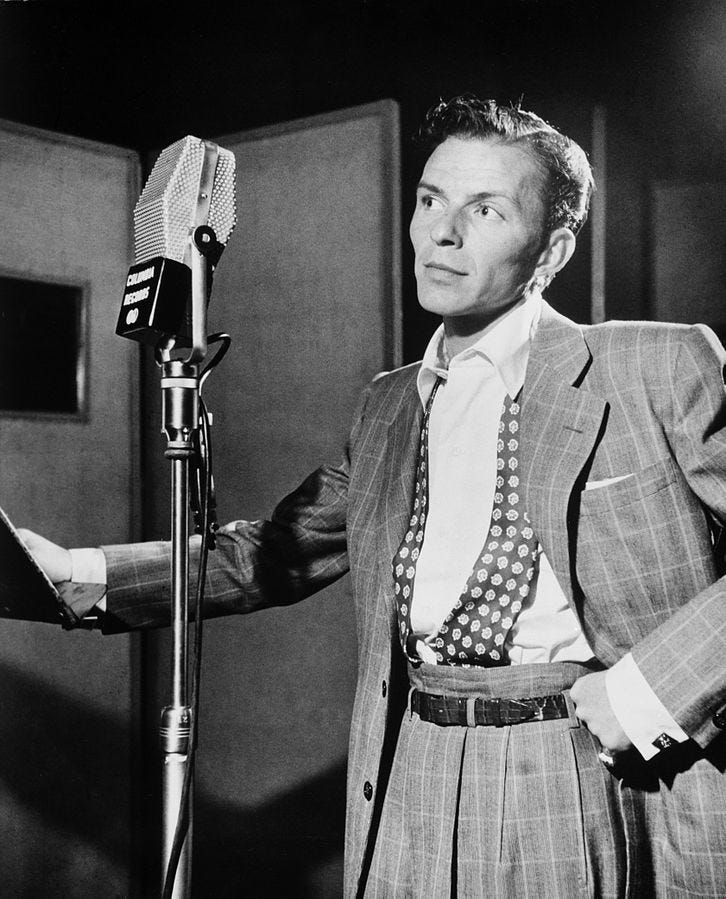
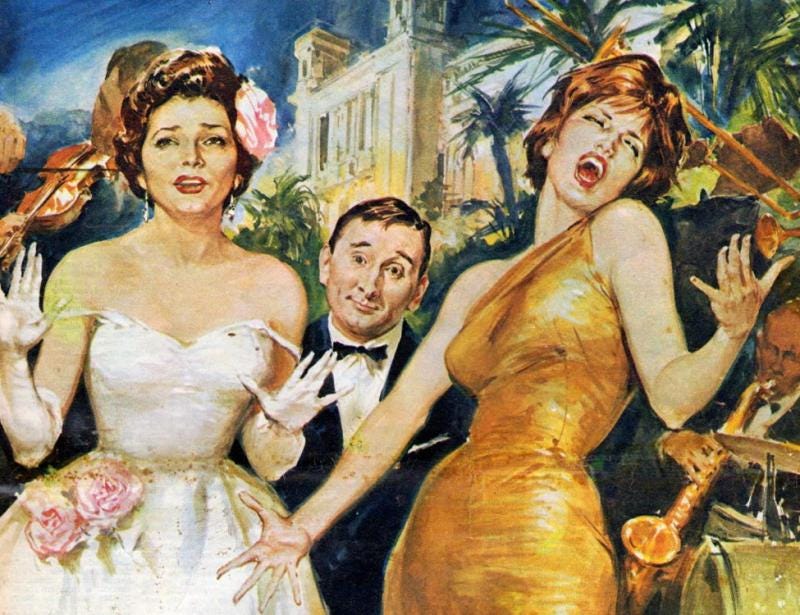
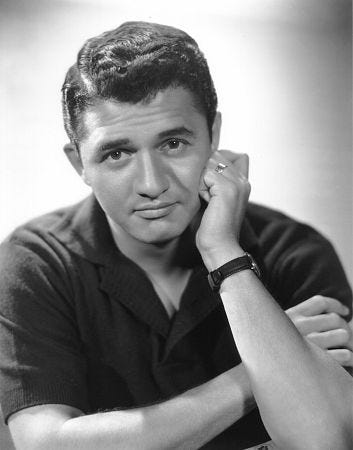
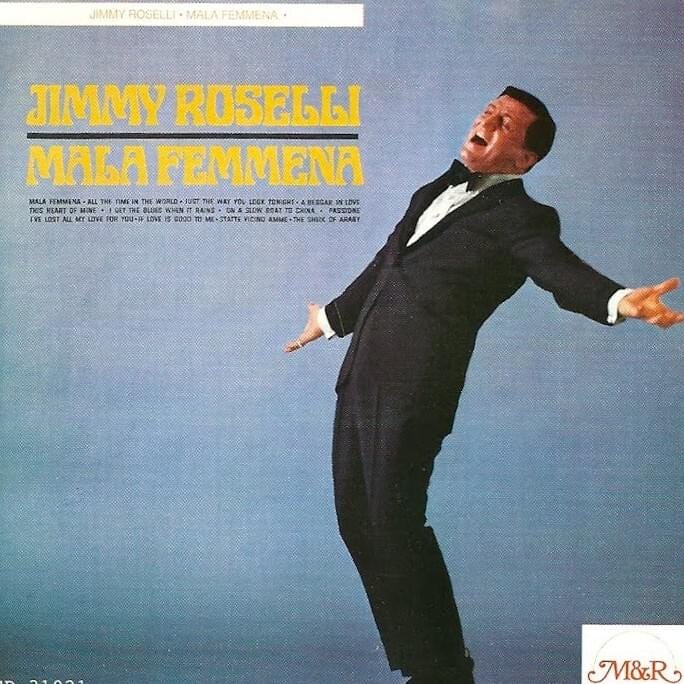
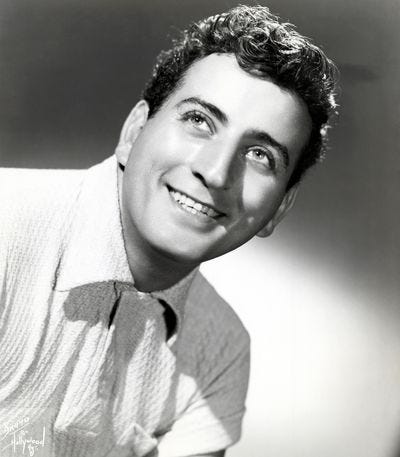
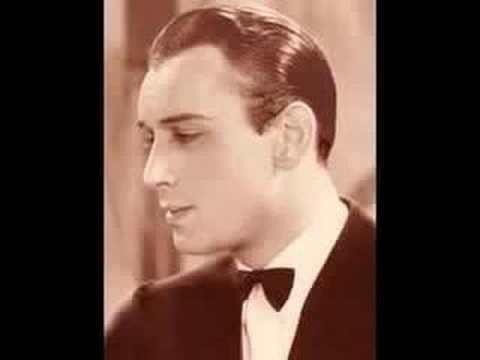
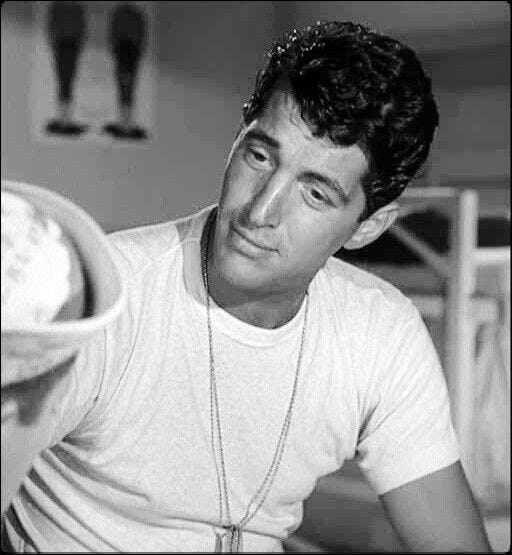
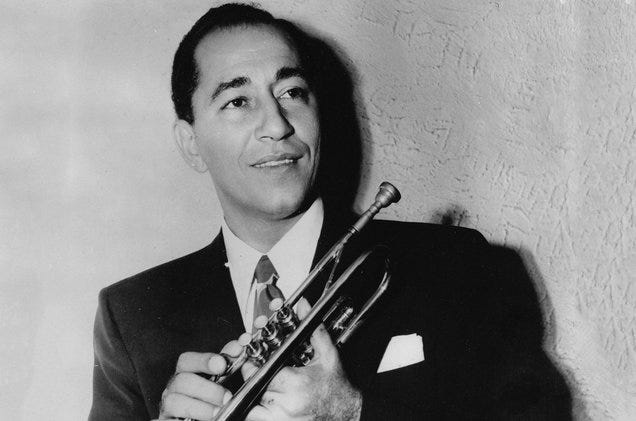
Dino, Frank, and Tony were very familiar to me growing up. I actually lived in The City for some years, and "I Left My Heart" will always be a favorite. I especially enjoy the duets Bennett recorded with Lady Gaga. (I've long felt she should drop the clown suits and circus acts, because her voice and talent are the things that ought to be on stage.)
I want to thank John for introducing you to these greats, so that we could learn more about them via the vehicle of your insightful writing, Stacey. Of course, I'm not at all surprised that after being exposed to these performers you've become a fan. These people have awe inducing talent, so much so that the kind of music they sung is almost irrelevant. I've long been a fan of Sinatra, Bennett, and Dean Martin, but thanks to you I now know about these other more obscure but just as impressive singers. These performers are more evidence of the beauty that only immigration can bring; Viva Italia!